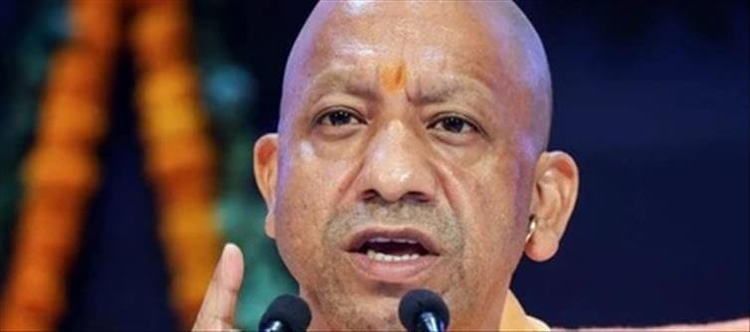
Yogi Adityanath, the chief minister of Uttar Pradesh, justified his administration's warning to Muslims not to conduct namaz on the street on Tuesday, arguing that roads are there for traffic flow. The bjp leader advised Muslims to take religious discipline from Hindus who participated in the vast maha Kumbh mela without experiencing any incidents of harassment, violence, or destruction in an interview with the news agency PTI.
"People are supposed to walk on roads. Hindus should teach those who are speaking (against the decision) discipline. In Prayagraj, sixty-six crore people arrived. Robbery, property destruction, arson, or kidnapping did not occur. We refer to this as religious discipline. "Discipline is also necessary if you want benefits," Adityanath stated.
The bjp leader denied any discrimination against Muslims, a claim he frequently encounters because of his persona and strict Hindutva beliefs. Although Muslims make up 20% of Uttar Pradesh's population, he claimed, they only make up 35–40% of those who need government assistance.
UP cm on 'bulldozer justice model'
Adityanath claimed that his well-known "bulldozer justice model," which is currently being used by other states as a demonstration of justice in spite of ongoing legal concerns, was more of a necessity than a success.
"It seems to me that we have shown how it can be used in a better way," the chief minister of UP stated.
He asserted that the supreme court has actually praised the rules that Uttar Pradesh has enacted and that none of the negative remarks it has made on bulldozer activity pertain to his state.
Yogi Adityanath on Waqf property issue
Regarding the present Waqf board controversy, Adityanath claimed that the boards have done little to advance the welfare of Muslims and have instead turned into a haven for egotistical interests and "loot khasot" (property grabbing).
He questioned whether the Waqf board has carried out any humanitarian work of this nature despite possessing an adequate number of properties, citing instances of Hindu temples and mutts providing charity in areas like health and education.
"Forget about the entire society; have Waqf properties been used for any welfare of Muslims?" he inquired.
"Waqf is now used to seize any property owned by the government. All reforms encounter resistance, and this one is urgently needed. The UP leader stated, "I think this (proposed law) will benefit Muslims."
"People are supposed to walk on roads. Hindus should teach those who are speaking (against the decision) discipline. In Prayagraj, sixty-six crore people arrived. Robbery, property destruction, arson, or kidnapping did not occur. We refer to this as religious discipline. "Discipline is also necessary if you want benefits," Adityanath stated.
The bjp leader denied any discrimination against Muslims, a claim he frequently encounters because of his persona and strict Hindutva beliefs. Although Muslims make up 20% of Uttar Pradesh's population, he claimed, they only make up 35–40% of those who need government assistance.
UP cm on 'bulldozer justice model'
Adityanath claimed that his well-known "bulldozer justice model," which is currently being used by other states as a demonstration of justice in spite of ongoing legal concerns, was more of a necessity than a success.
"It seems to me that we have shown how it can be used in a better way," the chief minister of UP stated.
He asserted that the supreme court has actually praised the rules that Uttar Pradesh has enacted and that none of the negative remarks it has made on bulldozer activity pertain to his state.
Yogi Adityanath on Waqf property issue
Regarding the present Waqf board controversy, Adityanath claimed that the boards have done little to advance the welfare of Muslims and have instead turned into a haven for egotistical interests and "loot khasot" (property grabbing).
He questioned whether the Waqf board has carried out any humanitarian work of this nature despite possessing an adequate number of properties, citing instances of Hindu temples and mutts providing charity in areas like health and education.
"Forget about the entire society; have Waqf properties been used for any welfare of Muslims?" he inquired.
"Waqf is now used to seize any property owned by the government. All reforms encounter resistance, and this one is urgently needed. The UP leader stated, "I think this (proposed law) will benefit Muslims."




 click and follow Indiaherald WhatsApp channel
click and follow Indiaherald WhatsApp channel